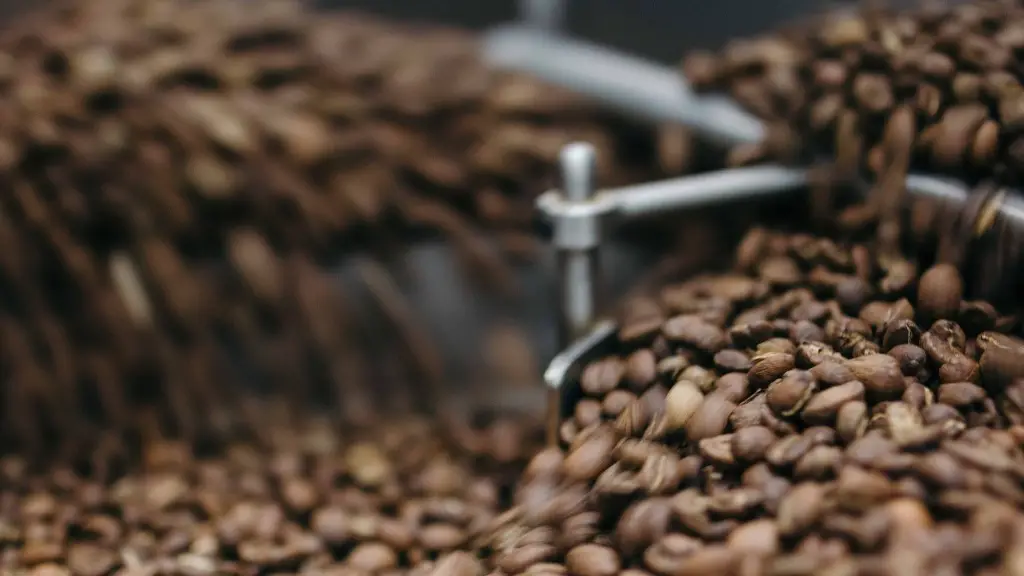Effects of Caffeine on the Body
Caffeine is a psychoactive drug found in many food and beverage products, including coffee. It is believed to work by stimulating the central nervous system and blocking the effects of adenosine, a neurotransmitter in the brain that causes drowsiness when levels are increased. A single cup of coffee contains around 95-200 milligrams of caffeine, depending on the type of bean used, flavor and brewing technique. Caffeine can have both positive and negative effects on the body, depending on the individual and the amount consumed.
When consumed in moderation, caffeine can improve alertness, focus, and physical performance, as well as reduce fatigue. On the other hand, too much caffeine can lead to restlessness, irritability, and anxiousness. Caffeine can also increase your heart rate and blood pressure and can even change the way your body absorbs certain medications.
Diarrhea and Caffeine
Diarrhea is a common digestive issue that can range from mild to severe and often lasts for a few days. It is caused by a variety of reasons, including food poisoning, infections, and certain medications. Diarrhea increases the speed with which food and liquids pass through the digestive system and can cause dehydration.
Caffeine is thought to make diarrhea worse in some people, as it can irritate the lining of the stomach, leading to an increase in stomach acid and digestive problems. According to the National Institutes of Health, caffeine can also act as a diuretic and lead to increased fluid loss, making dehydration even more likely. Furthermore, some believe that caffeine can increase the speed at which food and liquids pass through the gut, leading to a faster onset of diarrhea.
Therefore, it is recommended that people with diarrhea either avoid or limit their caffeine intake, as it can worsen symptoms and lead to further dehydration.
Coffee and Its Benefits
It is important to note that coffee can also have benefits, even in people with diarrhea. Coffee beans contain many antioxidants and beneficial compounds, including polyphenols, which have anti-inflammatory effects on the body.
In some studies, coffee has been found to improve the symptoms of diarrhea and other gastrointestinal issues, although it is recommended that the coffee be consumed in moderation to avoid worsening symptoms.
Coffee can also be beneficial in reducing the risk of certain chronic diseases, including coronary heart disease, stroke, type 2 diabetes, Parkinson’s disease, and some types of cancer.
Alternatives to Coffee
If you suffer from diarrhea and are avoiding caffeine, there are many alternatives you can try. Herbal teas and decaffeinated coffee are both caffeine-free options. You can also try drinks like green tea, which contains a small amount of caffeine, or herbal tea, which contains no caffeine at all.
In addition, probiotic drinks, such as fermented soy beverages, kombucha, and kefir, can be beneficial for people with diarrhea. These drinks contain beneficial bacteria that can help reduce symptoms.
Lastly, good old-fashioned water is still the best choice for people with diarrhea. Staying hydrated is key to preventing and reducing symptoms.
Dietary Changes
Another important factor in reducing diarrhea is to make some dietary changes. Avoiding dairy and fried foods, as well as foods high in fat and sugar, is recommended. Also, avoid foods or drinks that irritate the stomach, such as alcohol and spicy food.
Increasing fiber intake can help, as well as eating small, frequent meals rather than large ones. Additionally, it is important to consume probiotic-rich foods, such as yogurt with active cultures, as they can help to restore the healthy balance of bacteria in the gut.
Medications
In some cases, medications may be necessary to treat diarrhea. If diarrhea is associated with an infection, antibiotics may be prescribed. Anti-diarrheal medications may also be used to reduce symptoms.
Antidiarrheal medications, such as loperamide, can be purchased over the counter or by prescription. While antidiarrheals can help reduce symptoms, they should not be used for more than two days, as they may actually worsen the symptoms of diarrhea.
Home Remedies
In addition to the treatments above, there are also many home remedies you can try. Ginger, peppermint, chamomile, and turmeric may help reduce symptoms and eliminate discomfort. Drinking warm fluids like tea, broth, or warm water can also help. Taking a probiotic supplement can also be beneficial for restoring the healthy balance of bacteria in the gut.
Conclusion
Drinking coffee when you have diarrhea may worsen symptoms, however, it could also have benefits if consumed in moderation. There are many alternatives to coffee, such as herbal teas, decaffeinated coffee, and probiotic drinks, that can help reduce symptoms. Making dietary changes and taking medications may also be necessary. Lastly, home remedies like ginger and peppermint tea may help reduce discomfort.




